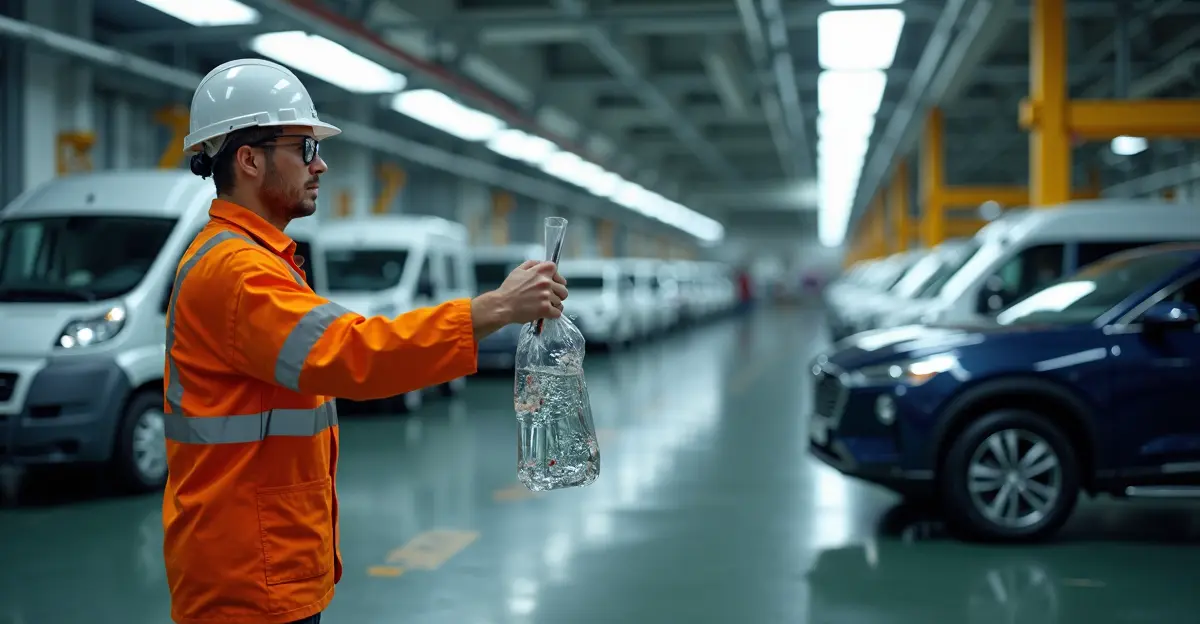Automakers are increasingly using recycled plastics and metals in vehicle production, driven by regulations and consumer demand. Ford targets 20% recycled plastics by 2025, while Volvo aims for 25%. The trend offers environmental and economic benefits despite implementation challenges.

The Green Revolution in Automotive Manufacturing
The automotive industry is undergoing a profound transformation as major manufacturers increasingly turn to recycled plastics and metals to create more sustainable vehicles. In 2025, this trend has accelerated dramatically, driven by environmental regulations, consumer demand, and the economic benefits of circular economy practices.
Leading the Charge in Sustainable Materials
Ford Motor Company has committed to using 20% recycled or renewable plastics in its vehicles by 2025, according to technical expert Alper Kiziltas. The company has pioneered innovative approaches, including transforming agricultural waste into automotive components. 'We're not just recycling traditional materials - we're finding new value in waste streams that would otherwise end up in landfills,' says a Ford sustainability spokesperson.
Volvo Cars has set even more ambitious targets, announcing that from 2025, at least 25% of plastics in every new Volvo will be recycled. The company demonstrated this commitment with a special XC60 SUV featuring components made from discarded fishing nets, maritime ropes, and recycled PET bottles.
The Economic and Environmental Benefits
According to the 2025 Green Materials in Cars Strategic Analysis Report, recycled plastics and metals have become the most widely adopted sustainable materials in the automotive sector. The report highlights their cost-effectiveness, reduced carbon emissions, and circular economy advantages compared to virgin materials.
'The business case for recycled materials is stronger than ever,' notes automotive industry analyst Maria Rodriguez. 'Not only do they help automakers meet regulatory requirements, but they also reduce production costs and vehicle weight, improving fuel efficiency.'
Regulatory Drivers and Market Trends
European Union regulations are playing a crucial role in accelerating adoption. The EU will require automakers to use 25% recycled plastics in vehicles by 2030, with a quarter of that coming from end-of-life vehicles. This regulatory pressure is forcing rapid innovation across the industry.
The global automotive recycling market is projected to grow from $72.3 billion in 2022 to $160.2 billion by 2028, reflecting the increasing importance of sustainable practices. Cars are already the most recycled consumer products worldwide, with 95% of end-of-life vehicles recycled in the U.S. alone.
Challenges and Future Outlook
Despite the progress, significant challenges remain. High implementation costs, supply chain complexities, and sourcing inefficiencies for bio-based materials continue to hinder widespread adoption. The 2025 Green Materials Report notes that economic headwinds and EV market slowdowns may impact the pace of sustainable material adoption.
'We're at a critical juncture,' observes sustainability consultant Dr. Evelyn Nakamura. 'The technology exists to create truly circular vehicles, but we need stronger collaboration between automakers, suppliers, and recyclers to make it economically viable at scale.'
Looking ahead, major OEMs are expected to implement closed-loop recycling processes within 3-5 years, while digital technologies like blockchain and AI will enhance supply chain transparency for sustainable sourcing. The automotive industry's journey toward sustainability is well underway, with recycled materials playing an increasingly central role in creating the cleaner, greener vehicles of tomorrow.

 Nederlands
Nederlands
 English
English
 Deutsch
Deutsch
 Français
Français
 Español
Español
 Português
Português









